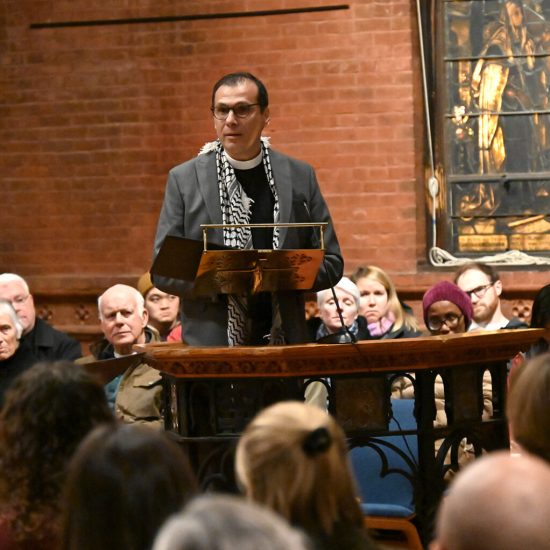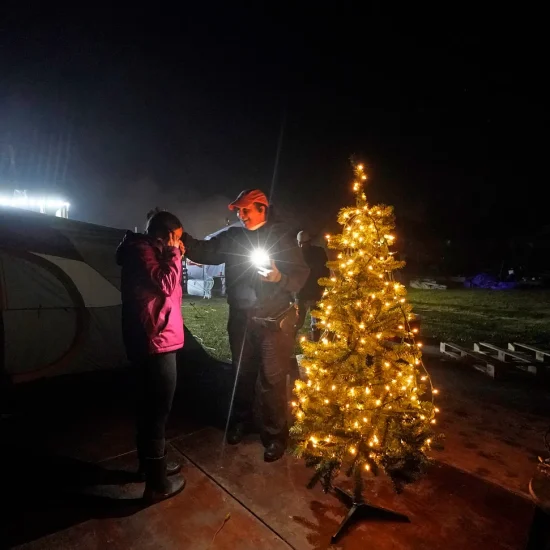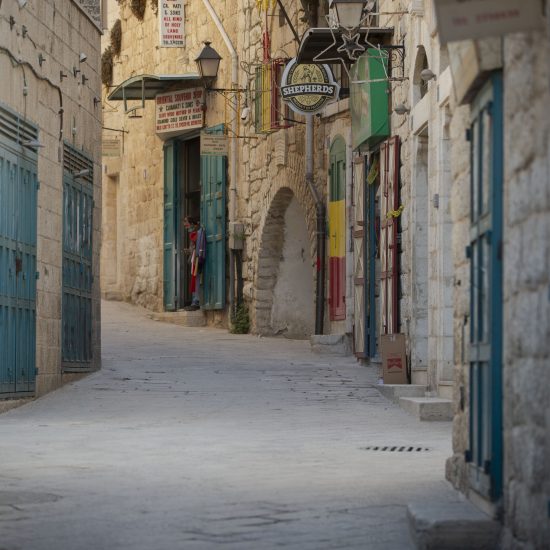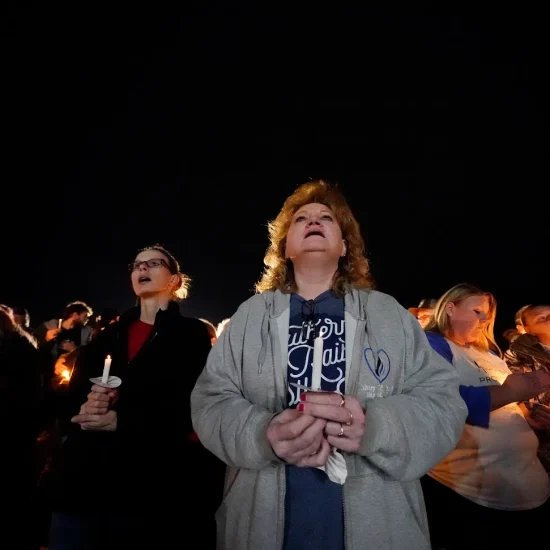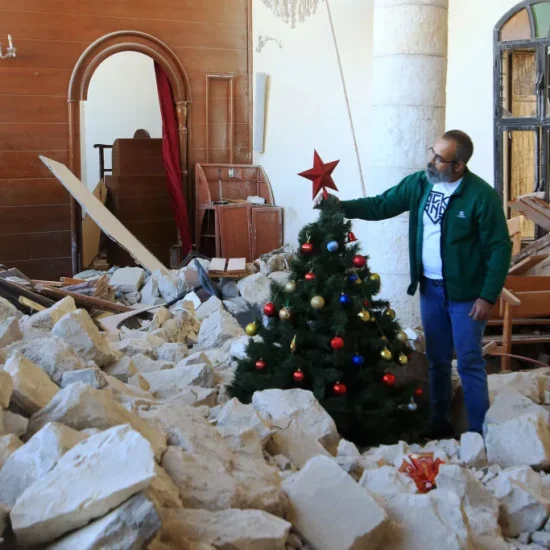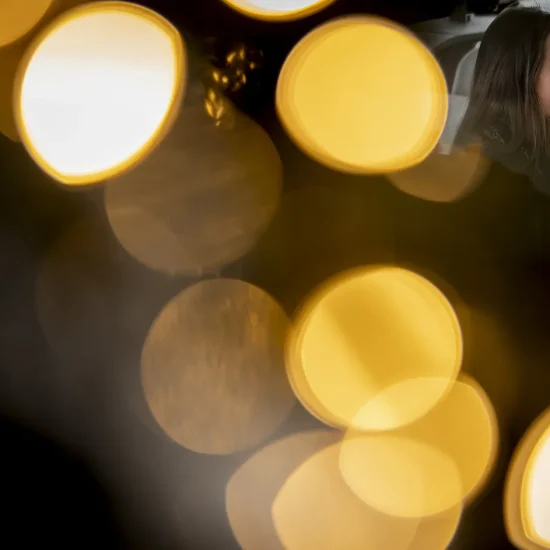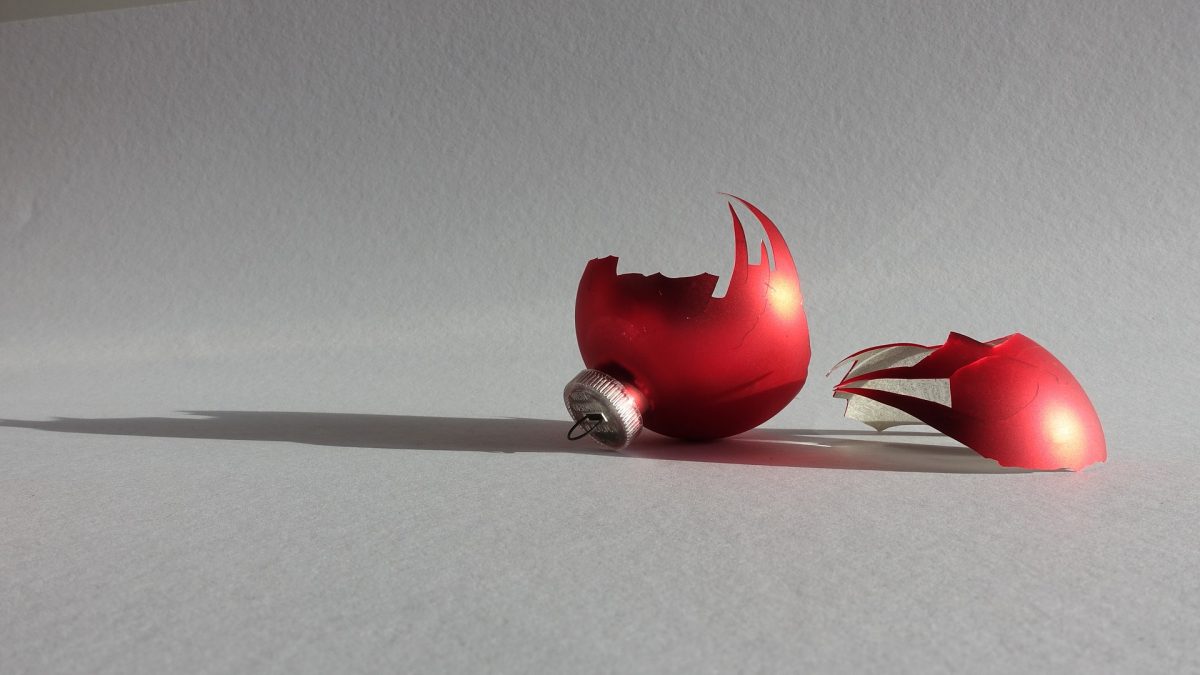
There’s a famous line in C.S. Lewis’s The Lion, the Witch, and the Wardrobe where a character laments that because of the White Witch’s rule over the land of Narnia, it is “always Winter but never Christmas.” The line resonates because we can imagine the dreariness of living in a cold, dark place without the one moment of joy bursting through. Just when our days get the darkest, we put up Christmas lights, exchange presents, sing old familiar carols, cook special feasts, and spend extra time with family and friends.
This year the line resonates more than usual.
We face another depressing moment like the one described by Tumnus the faun to Lucy Pevensie as she found adventure through that old wardrobe. Many churches will close their sanctuaries during this holy season. Many families will forgo normal festivities — and many others will mourn those who’ll never again sit at holiday dinners.
We’ll miss the candles glowing through the sanctuary on Christmas Eve. We’ll miss the laughter of young cousins playing with new toys, the crinkling of wrapping paper adding to chorus of their giggles. We’ll miss the hugs with older family members, who are either isolated by quarantine or gone without a proper farewell.
Winter is here, but it doesn’t feel like Christmas.

Sure, Christmas isn’t canceled. We know it’s still in our hearts. We can put up the lights on our house, read the old familiar story, sing a few hymns in our own homes, and watch a pastor on the screen.
But it won’t really feel like Christmas.
And we shouldn’t pretend everything’s alright. It’s okay to lament. It’s okay to express our disappointment. It’s okay to miss what we can’t have and do this year. Because that’s part of the Christmas story, too.
Surreal
Our traditional Christmas carols make everything sound so peaceful and happy. It’s supposedly a silent night in a little town with deep and dreamless sleep.
But in reality, there’s the cries of childbirth, the grunting of animals, the shouting of angels, and the running of shepherds. There’s also the bustling of people across the kingdom traveling for a census. Merchants cry out to sell goods for the journeys, people and animals crunch along the roads, and perhaps thieves pounce like in the later parable about that dangerous road between Jerusalem and Jericho.
And then even after that noisy night of glorious proclamation, salvation doesn’t come.
Soon the streets of that little town ring out with the shrieks of parents crying out for babies slaughtered by the order of a mad ruler desperately clinging to power despite the news that another’s been selected. Roman soldiers continue to police the land, holding the people in bondage without a Messiah. Corrupt tax collectors like Zacchaeus continue to rob the people with the force of the state.
For decades.
Somehow these parts of the story don’t usually make it in our cute Christmas pageants.
Yet, even today we see the same old story playing out not just in our Bibles but also on the streets. That little town isn’t so little today. Nor is it always peaceful. Nor is it free from oppression. The shepherds might have difficulty getting into the town today with the massive wall and military checkpoints.
That’s why several years ago the band Over the Rhine remade “O Little Town of Bethlehem.” They kept the first verse for their song “Little Town,” but then moved on with a message that both fits today and the days and years immediately following that holy night.
There is no peace in Bethlehem;
There is no peace in sight.
The wounds of generations
Almost too deep to heal
Scar the timeworn miracle
And make it seem surreal.
What if Christmas came and nothing changed? What if after the angels go away, the darkness settles back on the land? What if the days and years to follow just seemed like those before the first Noel?
Holding Pattern
Two years ago, singer Kirby Brown released a song that might be the song for this season. While most Christmas songs offer upbeat, happy notes that seem a bit off-tune this year, Brown’s song “Shepherd’s Lament” provides an honest look at when Christmas just doesn’t feel special. It’s a song I’ll have on repeat this Advent.
Brown, who grew up in rural east Texas and the Ozark Mountains of Arkansas, starts by imagining a shepherd back in Bethlehem who heard that angels proclaimed “good news” but who struggles to find the faith to see any salvation actually coming. After all, if the King has come, where is he?
I walked down through the village, out past the city lights,
Up here on this hilltop out of sight.
And I hear everybody singing, but I just can’t find the tune.
If grace is coming, I hope it’s coming soon.
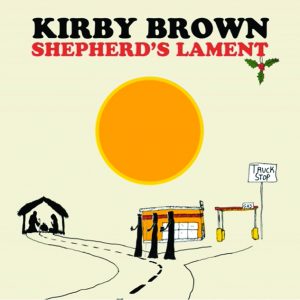 With the song meshing together the old story and the contemporary, the cover art for the track shows the Magi at a fork on a dotted road. The nativity scene can be seen off to the left. On the right is a gas station. And Brown rests the song in that undefined time — back then and now — after the announcement but still before God’s justice comes to reign.
With the song meshing together the old story and the contemporary, the cover art for the track shows the Magi at a fork on a dotted road. The nativity scene can be seen off to the left. On the right is a gas station. And Brown rests the song in that undefined time — back then and now — after the announcement but still before God’s justice comes to reign.
The wise men must have missed their turn somewhere on highway 10,
The walls of that old manger caving in.
And Heaven’s in a holding pattern over Bethlehem.
It makes me wonder. What did those shepherds start to think a decade after that first Christmas? Two decades? Three? Were any even still alive when Jesus started his ministry?
Did the aging shepherds start to doubt their memories? Did they ask each other if angels really had appeared? Did they stop telling their kids and grandkids the story? Did they lose hope?
We don’t know. The text is silent. Those unnamed shepherds disappear into the night. They likely spent the rest of their lives on those hills outside Bethlehem, still waiting for the rise of the new David. Perhaps some lost a son to Herod’s brutality, turning the angelic proclamation of “good news” into a cruel joke.
Perhaps it seemed that even though they saw a glimpse of the glory of Heaven, salvation really was stuck in a holding pattern. After centuries of waiting for the Messiah, his coming brought … more waiting.
And today, we wait. We wait for a vaccine. We wait for a time without masks. We wait for a time when we can safely gather together for worship. We wait for a time when we can pass the cranberries and mashed potatoes to grandma. We wait.
So, let us voice that pain, grief, and doubt this year. Let us not pretend everything is okay. Let us not declare “peace, peace” when there is no peace. Let us weep like Rachel, let us worry like Mary and Joseph, let us search like the Magi, let us even express our hope amid doubts like Brown and his lamenting shepherd.
I try to keep on hoping but don’t know what I’m hoping for.
Christmas just feels like the day before.

